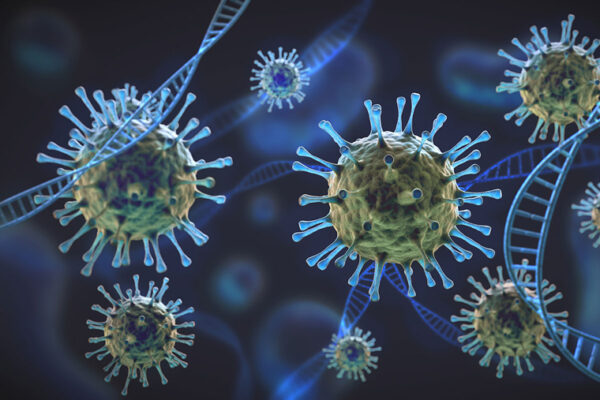Postdoctoral researchers receive Keck fellowships
This year’s W.M. Keck Fellowships in Molecular Medicine have been awarded to three postdoctoral researchers at Washington University. The fellowships are funded with a gift from the W.M. Keck Foundation.
$33 million to support study comparing anesthetic medications
Funded by a $33 million grant, a new study led by School of Medicine and University of Michigan researchers will compare intravenous propofol to inhaled anesthetic drugs to determine which of the common anesthetic drugs offers better patient recovery experiences and improved clinical outcomes.
NIH funds Rudra, Jackrel to improve vaccines for elderly
Washington University’s Meredith Jackrel and Jai Rudra and are researching nanofiber materials that will eliminate the need for vaccine adjuvants.
Immunologist joins Colonna lab as Pew Latin American Fellow
Brazilian immunologist José Luís Fachi will join the laboratory of Marco Colonna, MD, the Robert Rock Belliveau, MD, Professor of Pathology at the School of Medicine, as a Pew Latin American Fellow in Biomedical Sciences. Fachi plans to study how metabolites produced by healthy gut bacteria promote intestinal immunity.
MRI’s magnetic field affects focused ultrasound technology
Research from the McKelvey School of Engineering highlights the interaction between MRI and focused ultrasound with microbubbles.
Four physician-scientists named Dean’s Scholars
The Division of Physician-Scientists at the School of Medicine has selected four physicians for its second class of Dean’s Scholars. The program provides up to two years of financial support and mentorship to aspiring, early-career physician-scientists, along with dedicated time for conducting laboratory research.
Developmental biologist receives NIH grant
Kristen Kroll, professor of developmental biology at the School of Medicine, has received a four-year $2.1 million grant from the National Institutes of Health (NIH) for her project on human interneuron progenitor specification.
Researcher receives NIH funding for zebrafish work
Lilianna Solnica-Krezel, at the School of Medicine, has received a five-year $3.36 million renewal grant from the National Institute of General Medical Sciences of the National Institutes of Health (NIH) for her project “Inductive and Morphogenetic Processes Shaping the Zebrafish Embryonic Axes.”
COVID-19 vaccine generates immune structures critical for lasting immunity
A study from School of Medicine researchers, published in the journal Nature, has found evidence that the immune response to the first two COVID-19 vaccines authorized by the FDA is both strong and potentially long-lasting.
Virus that causes COVID-19 can find alternate route to infect cells
The virus that causes COVID-19 normally gets inside cells by attaching to a protein called ACE2. School of Medicine researchers have found that a single mutation confers the ability to enter cells through another route.
Older Stories









